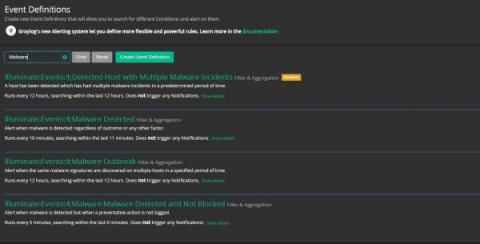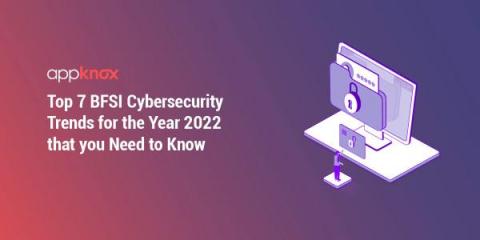Security | Threat Detection | Cyberattacks | DevSecOps | Compliance
Latest News
Introducing wachy: A New Approach to Performance Debugging
Wachy is a new Linux performance debugging tool that Rubrik recently released as open source. It enables interesting new ways of understanding performance by tracing arbitrary compiled binaries and functions with no code changes. This blog post briefly outlines various performance debugging tools that we commonly use, and the advantages and disadvantages of each. Then, we discuss why and how we built wachy.
Protect Archived Data from Ransomware with Immutability for Amazon Web Services Cloud Storage
Protecting your data in the cloud is fundamental to your security posture in terms of business continuity and disaster recovery. While Rubrik customers utilize the cloud every day to safely store off-site copies of their data, this blog is going to explain how we’ve made that practice even safer! We know that security threats to backup systems are on the rise, with hacking, malware, and even human error becoming more prevalent in the age of remote work.
Monitoring Endpoint Logs for Stronger Security
The massive shift to remote work makes managing endpoint security more critical and challenging. Yes, people were already using their own devices for work. However, the rise in phishing attacks during the COVID pandemic shows that all endpoint devices are at a higher risk than before. Plus, more companies are moving toward zero-trust security models. For a successful implementation, you need to secure your endpoints.
Getting the best out of Samsung Knox management with Mobile Device Manager Plus
In case you missed it, Samsung Knox has verified Mobile Device Manager Plus as a Knox Validated Partner solution. This means that our EMM solution meets its business-level requirements for 2022, and that we support a wide range of features to help you get the best out of all your mobile devices that support Samsung Knox capabilities.
When It comes to Cybersecurity - An ounce of prevention
So, to what extent are we able to protect ourselves from Cybersecurity events? With the alphabet soup of acronyms out there such as NIST, ISO, SOC, CISA, DevSecOps, etc…… protecting your business from Cybersecurity threats can be overwhelming. Making Cybersecurity a priority can save your business down the road. Threat Actors, once in, may lay dormant for months much like a human virus.
Power the SOC of the Future with the DataLinq Engine - Part 3
In my first blog in this three-part series, we discussed the importance of data to the modern SOC, and the unique approach of ThreatQ DataLinq Engine to connect the dots across all data sources, tools and teams to accelerate detection, investigation and response.
Snyk Code scanning added to the Snyk Visual Studio extension
Snyk Code provides a new generation of static application security testing (SAST). It uses a unique process that uses machine learning to rapidly grow its knowledge base and a Snyk security engineer to assure the quality of the rules. As a result, the Snyk Code knowledge base grows exponentially and results in an industry-leading high accuracy. On top of that, Snyk Code provides real-time scanning so developers can use it right from their favorite IDE.
Top 7 BFSI Cybersecurity Trends for 2022 that you Need to Know
BFSI (Banking, Financial Service and Insurance) organizations have remained a primary target of cybercriminals over the last several years. Given the amount of sensitive data that the BFSI sector has to deal with, they become an obvious goldmine for hackers and that is why they have to prioritise cybersecurity above all else. As a matter of fact, more than 70% of fintech companies cited information security as their top concern in the Sixth Annual Bank Survey.
Vulnerable AWS Lambda function - Initial access in cloud attacks
Our security research team will explain a real attack scenario from the black box and white box perspective on how a vulnerable AWS Lambda function could be used by attackers as initial access into your cloud environment. Finally, we show the best practices to mitigate this vector of attack. Serverless is becoming mainstream in business applications to achieve scalability, performance, and cost efficiency without managing the underlying infrastructure.











